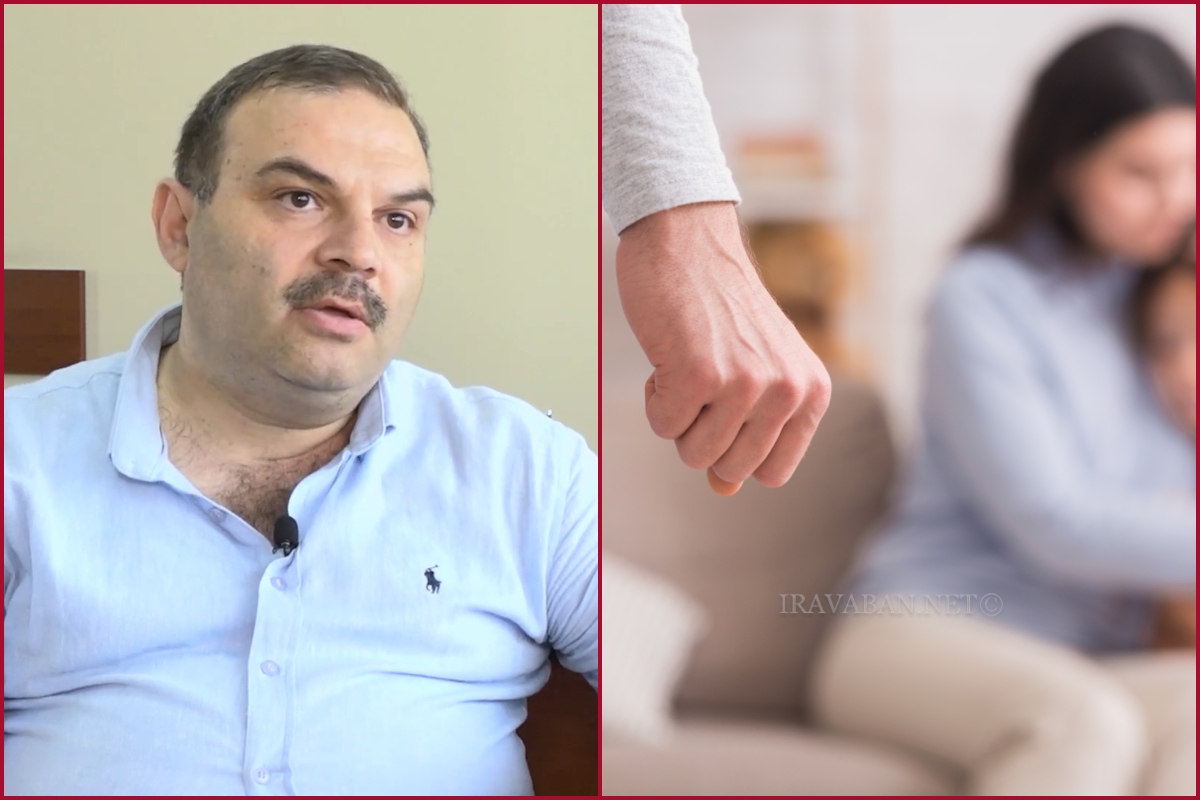The Police Reform Implementation Strategy and the resulting 2024-2026 Action Plan emphasize the fight against domestic and gender-based violence, as well as violence against children.
The Police play an important role in preventing and combating domestic and gender-based violence, as well as violence against children. One of the Government’s priorities is the clear legal regulation of Police powers in this area.
Although a number of laws and sub-legislative acts have already been adopted, including the Law “On the Prevention of Domestic and Gender-Based Violence and Protection of Persons Subjected to Domestic and Gender-Based Violence,” there are still issues of cooperation and implementation.
Vice President of the Armenian Lawyers’ Association Marat Atovmyan noted in an interview with Iravaban.net that the Republic of Armenia has special legislation relating to the fight against domestic violence.
“The Police have a corresponding subdivision that deals with the prevention of domestic violence, registration of perpetrators and works with them. There are also relevant international documents, as well as successful international experience on how to detect and prevent such cases,” notes Marat Atovmyan.
Types of Domestic and Gender-Based Violence
Domestic and gender-based violence is considered to be physical, sexual, psychological or economic violent acts or neglect committed between family members or partners or former family members or former partners, regardless of their cohabitation circumstances.
The types are:
- Physical violence
- Sexual violence
- Psychological violence
- Economic violence
- Neglect
The Law and Amendments Made to It
The Law “On the Prevention of Domestic and Gender-Based Violence and Protection of Persons Subjected to Domestic and Gender-Based Violence” has been in effect since January 31, 2018.
During its implementation, a number of reforms have been carried out that aim to:
- More clearly define the scope of persons subjected to violence
- Provide them with more effective protection
- Improve protection mechanisms based on both national experience and international best practices
In addition, the Government has developed two strategic documents:
- The 2024-2028 Gender Policy Implementation Program, which envisages prevention of violence against women and girls and assistance pathways
- The 2024-2029 Child Rights Protection Program, which includes measures to combat child abduction, sexual violence, bullying and other forms of violence
In accordance with these programs, the Ministry of Internal Affairs must initiate a number of comprehensive actions that will include:
- Evidence-based policy
- Professional capacity development
- Closer cooperation between agencies
The Importance of Retraining
Victims of domestic violence, especially women and children, are more vulnerable to repeated violence. Therefore, it is important to:
- Apply trust-building communication methods
- Exclude accusatory or derogatory language
- Ensure proper registration and safe transfer of victims, for example to shelters
For this purpose, it is necessary to:
- Develop special communication guidelines
- Review Police retraining programs
- Establish standard operating procedures that guarantee a victim-centered and gender-sensitive approach
The Republic of Armenia’s strategic action plan envisages developing and establishing a monitoring procedure for preventing domestic and gender-based violence by minors within the framework of preventive registration of domestic violence.
In addition, procedures for detecting cases of domestic and gender-based violence, referring persons subjected to domestic and gender-based violence, and assessing the risk of recurrence of domestic and gender-based violence cases must be developed and adopted.
Separate working guidelines are also envisaged for communication with children and other persons subjected to violence. Police officers, including patrol officers, will also be retrained.
Successful International Experience
For example, in a number of European countries, barnahus operate. This is a place where a multidisciplinary and inter-agency team of law enforcement agencies, criminal justice, child protection services, as well as health and mental health specialists cooperate to provide optimized services for child protection and child-friendly justice. Services are provided free of charge to children and their families.
These child protection centers first began operating in the United States in 1985. The center’s goal was to prevent secondary trauma by providing a friendly, safe and neutral environment for children for forensic examinations, interviews, medical examinations and treatment.
Iceland established the barnahus in 1998, inspired by the Child Advocacy Center model. The barnahus differed from the Child Advocacy Center model in that its services were integrated into national public welfare and judicial systems.
A child’s recorded testimony at the barnahus is considered valid evidence for judicial proceedings, thus eliminating the need for the child to wait months or years to appear in court, while respecting defense rights.
The model was then adopted in other Scandinavian countries based on Icelandic practice: first in Sweden in 2005, Norway in 2007, and Denmark in 2013. Overall, there are more than 50 barnahus points in Scandinavian countries.
Since 1991, the Government of Canada has created the Family Violence Initiative program, bringing together 15 federal ministries and agencies in the field of domestic violence prevention and support.
The program has 24/7 hotlines and shelters in all provinces of Canada, conducts special training for police officers, doctors, teachers who must work with persons who have experienced violence.
International experience shows that a coordinated approach, victim-centered policies and inter-agency cooperation are vital for preventing cases of violence and ensuring effective response.
The “Public Oversight and Awareness of Effective and Inclusive Police Reforms” sub-grant is implemented by the “Armenian Lawyers’ Association” with funding from the European Union under the “Monitoring Justice Sector Reforms in Armenia” program (www.juremonia.am) within the framework of a grant announced by the “Social Justice” public organization.
The overall goal of the program is to increase civil society participation in monitoring and impact assessment of police reforms by ensuring structural engagement mechanisms, independent assessment and raising public awareness. Close cooperation and engagement with public organizations as well as relevant subdivisions of the Ministry of Internal Affairs is envisaged during program implementation.
This article was prepared with the financial support of the European Union. The “Armenian Lawyers’ Association” public organization is responsible for the content and it does not necessarily express the views of the European Union.















